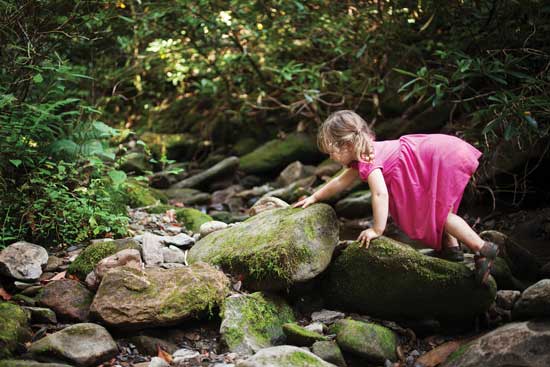When learning occurs in the context of nature, this type of education is known as Nature-Based Learning or Nature-Based Education. It occurs in natural settings where nature’s elements have been built into environments like plants, animals, and water.
Why is Nature-Based Learning Important?
Nature-Based Learning has numerous benefits of academic, social and behavioral development in children. As the number of Nature-Based programs increase, to understand the relationships between these environments and children’s overall well-being research is needed.
What Can Children Learn From Nature?
Children are innate scientists and love experiencing scents, sights, sounds, and texture of the outdoors. Nature provides countless opportunities for creativity, discovery, problem-solving and STEM (Science, Technology, Engineering, and Math) education. Interacting with nature allows children to learn by doing and experiment with nature.
Why is Nature Play Important in Childhood?
Early childhood educators observed improved focus, self-regulation, socialization, problem-solving, reduced stress, boredom & injury. For promoting children’s well-being and development outdoor play spaces are important.
Many studies show the positive links between direct experiences in nature and children’s mental, emotional, physical health and well-being. Studies show that regular direct access to nature can increase resilience and self-esteem against adversity and stress.
How Does Nature Effect a Child’s Development?
Just about every aspect of your child’s brain is governed by both nurture and nature. Nurture refers to the different environmental factors that have influenced brain development over the years, while things like genetic traits inherited from our parents and grandparents.
Benefits of Nature-Based Learning
Along with mental benefits, nature-based learning has physical advantages also. Students obtaining education outside tend to be physically active, and have a tendency to possess higher nutrition habits. Nature-based education will make learning helps develop deeper interests by exposing them to a lot of world opportunities.
Nature play has clear physical edges for developing kids as well as serving to kids to accumulate gross motor skills, eye-hand coordination and serving to to forestall fat. Sensory stimulation derived from interacting with natural environments permits kids to be told with all of their senses.
What Valuable Life Lessons Does Nature Teach Us?
- Divine Timing. Nature teaches us that for everything there is a season and the right timing.
- Nature teaches us to be humble.
- Self-Offering. In your own Life, self-offering is most important.
- Beauty in simplicity
- Renewal and Restoring powers.
- It’s natural
Observing and being in nature spark fantastic, important, creative work from people such as philosophers, scientists, and artists, but it can also offer lessons for basic living: how to be healthy, how to be calm, and how to find balance, for instance.
Nature-Based Activities for Kids
From Hunting Bugs to seashell magnets, these awesome hands-on activities are a great way for your child to get a little closer to nature.
- Bug Hunting
- Create Rock Art
- Summer Memento Wreath
- Pressed Flower Place Mats
- Make A Nature Bracelet
- Nature Scavenger Hunt
- Build A Terrarium
- Make A Bird Feeder

Pingback: How To Live A Healthy And Happy Lifestyle - Guest Posts Hub
Pingback: 8 Reasons Why An International School Is Worth It
Pingback: Guide To Improve Physical Activity For Your Kids
Pingback: Tips On How To Find A Perfect Place For Your Family In Texas
Pingback: 10 Tips To Prepare For College Life - Blogger's Paradise